Planet Zoo is a tycoon game striving for perfect animal realism
Even the leopards are spot on.
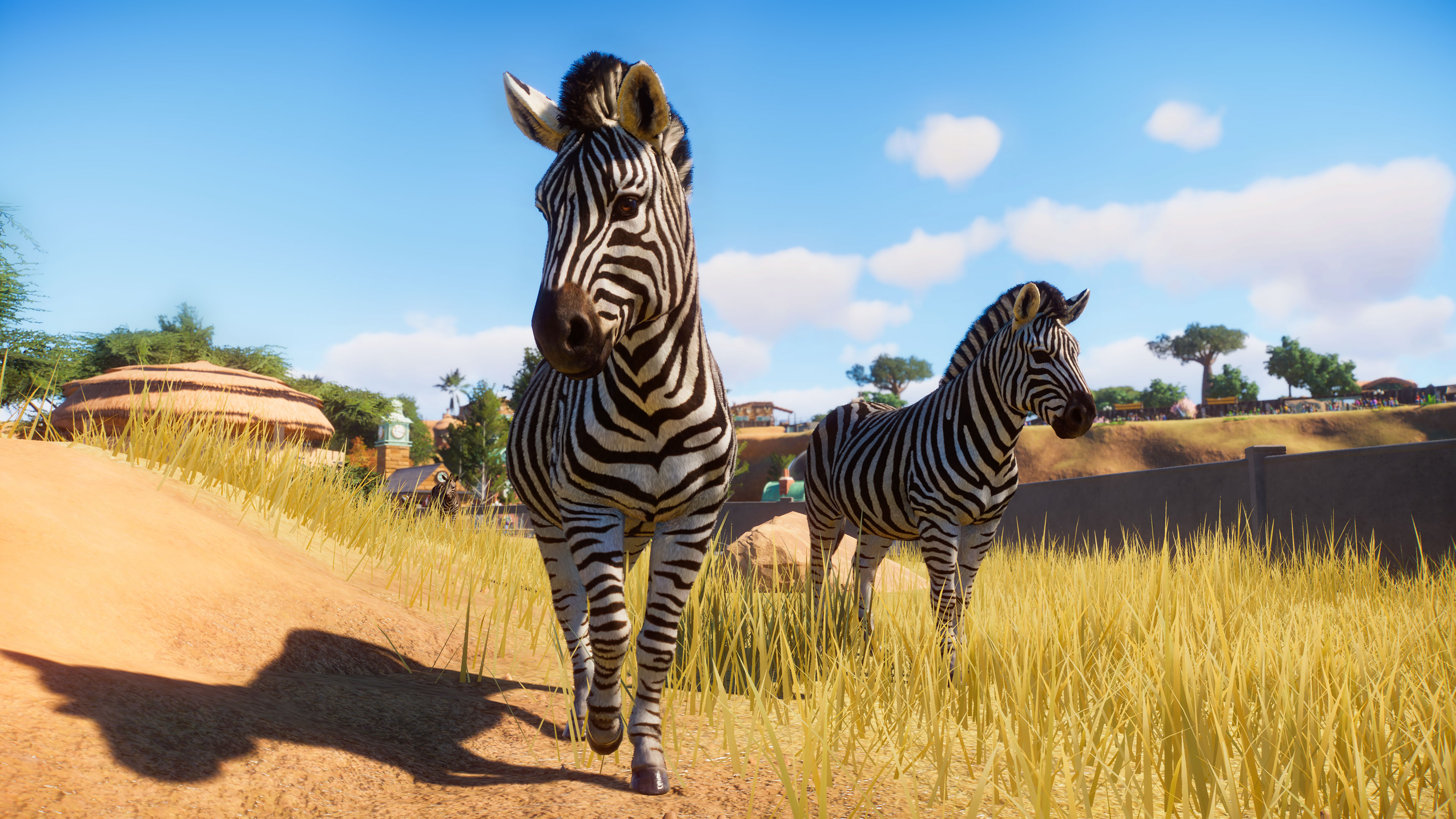
This article was originally published in PC Gamer issue 331. For more quality articles about all things PC gaming, you can subscribe now in the UK and the US.
The next game from Frontier, the creator of Elite Dangerous and Planet Coaster, is a zoo simulator. It makes sense, really. The developer has created zoo management games in the past, and it feels like a natural extension of the Planet series. But Planet Zoo is a very different game from Planet Coaster, with a focus on caring for animals, ecology, and preservation over the immediate, gut-churning thrills of a theme park.
“They both have a lot in common,” explains Piers Jackson, Planet Zoo’s game director. “They’re both part of the same Planet franchise, of course, but we have a very different focus here. Planet Coaster has a heavy engineering focus, on rides. But here we have a heavy welfare focus on the animals. That’s really where our simulation is grounded. Creating the most authentic animals we can, getting the player to look after them.”
You have total freedom when it comes to designing your zoo, building habitats, decorating it, and filling it with animals. Like Planet Coaster there’s a vast Lego set of bits-and- pieces to slot together, letting you create any zoo you can imagine. Then you can choose which animals to populate it with, and even breed your own. The game also has a strong conservation message, refl ecting the real-world importance of giving these creatures happy, fulfilling lives, not just exploiting them for financial gain.
“Animal husbandry is core to any modern zoo, and some of these zoos are doing a fantastic job in that regard,” says Jackson. “We’ve spoken to zoo keepers as part of our research on this project, and they are there for the animals. They’re trying to repopulate the wild wherever they can. That’s something we very much wanted to refl ect in Planet Zoo.”
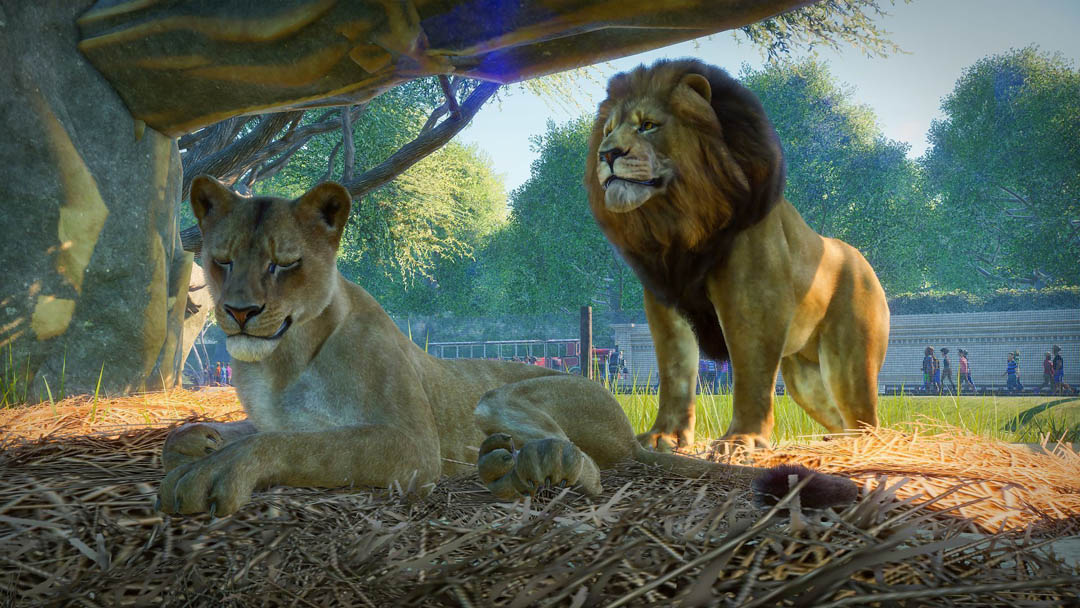
Jonny Watts, Frontier’s chief creative officer, also has a vested interest in Planet Zoo, because he has a degree in zoology. “I was making computer games back when I was doing my A-levels,” he says. “I was a bedroom coder. I’d go home after school and make games, and my mum would warn me that I’d never be able to make a living from it.
“So I took her advice, went to university and studied zoology, and I really enjoyed it. But I moved into computer science and, well, the rest is history. If I had to put my love of zoology down to one moment it’d probably be the first time I watched David Attenborough’s Life on Earth documentary series, back when there were only three TV channels to choose from.”
The biggest gaming news, reviews and hardware deals
Keep up to date with the most important stories and the best deals, as picked by the PC Gamer team.
Watts has worked on several other zoo simulations, but Planet Zoo is the game he always wanted to make. “I worked on Rollercoaster Tycoon 3, which had a zoo component,” he says. “I also worked with Microsoft on Zoo Tycoon. That was a decent game. The animals looked good, but I wanted it to have more depth.
“We just didn’t have time. So Planet Zoo is really the animal management game I’ve been wanting to make for 15 years, and being self-published means we can make the game we want.”
Just as the Planet Coaster team spent time at real theme parks, speaking to the people who design and run them, the Planet Zoo team has consulted with zoos in the same way. “I can’t name drop, but we have spoken to zoos,” says Piers Jackson. “We’ve visited them, spoken to the staff, vets, keepers, and management. We’ve immersed ourselves in it. It’s important that we understand the inner workings of a zoo. We have people working in the company with experience of it, and we’ve consulted with researchers who’ve given us large amounts of information about the animals. So really there are many approaches we have when it comes to authenticity.
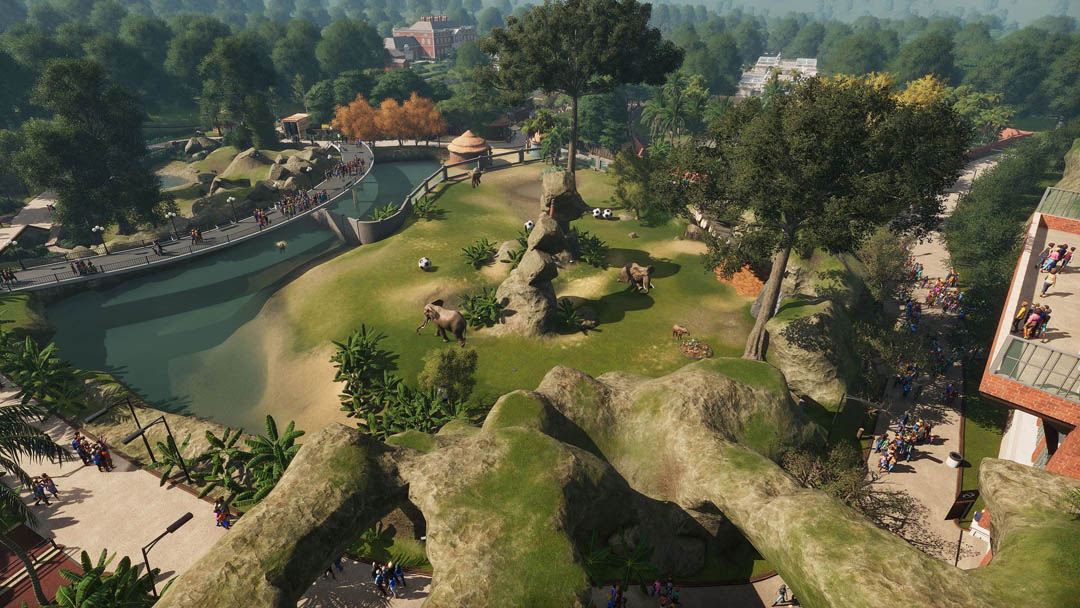
"Attention to detail is almost an obsession at Frontier. Grounding things with a scientific background is what we do best, whether it’s mapping a galaxy or making the most authentic rollercoasters down to the nuts and bolts.
“Or in the case of Planet Zoo, making sure the zoo the animals are part of is representative of what a modern zoo stands for, and that conservation and husbandry are catered for properly.”
“A streak of authenticity runs through all our games at Frontier,” says Jonny Watts. “I’d love it if people were inspired by them to pursue a career in zoology or astronomy, the same way Life on Earth inspired me to study zoology. Our games are fun, but there’s always a message in there. Not an overt one. But enough to inspire people, I hope.”
“We have to make sure Planet Zoo abides by the principles of the Planet franchise,” explains Watts when I ask him about what his high level goals for this new game are. “It’s all about this deep, piece-by-piece construction, giving people the tools to create anything they can possibly imagine. We have this Lego philosophy where it’ll take you time to build something, but when you do it you really revel in your achievement.”
Beast Master
The stars of Planet Zoo are undoubtedly the animals. They’re probably the most convincing, lifelike creatures I’ve seen in a game, with incredible fidelity and nuance of animation. When they move they have weight and presence, and you can see the muscles and bones moving under their skin. Zoom the camera in and you’ll see their noses twitch and their ears flap.
The idea, Frontier says, is to make you really care for the creatures in your zoo, so you don’t just think of them as expendable exhibits.
“We want these animals to feel like they’re important to you, that you do need to look after them and care for them,” says Piers Jackson. “And we have seen these attachments grow. One team member followed one of his elephants through a full life cycle, and it was distressing when it died. That’s a really cool moment. A real bond. The work of the team, be it the character modellers, the animators, or the guys doing the AI, has come together to create something that people are really invested in.”
“When you move the camera under a ride in Planet Coaster you can see all the workings and mechanisms, and we’re taking the same approach to the creation of the animals in Planet Zoo,” adds Jonny Watts. “We always go that extra mile to achieve a high level of fidelity at Frontier, and this is no different. We think Planet Zoo players will appreciate this.”
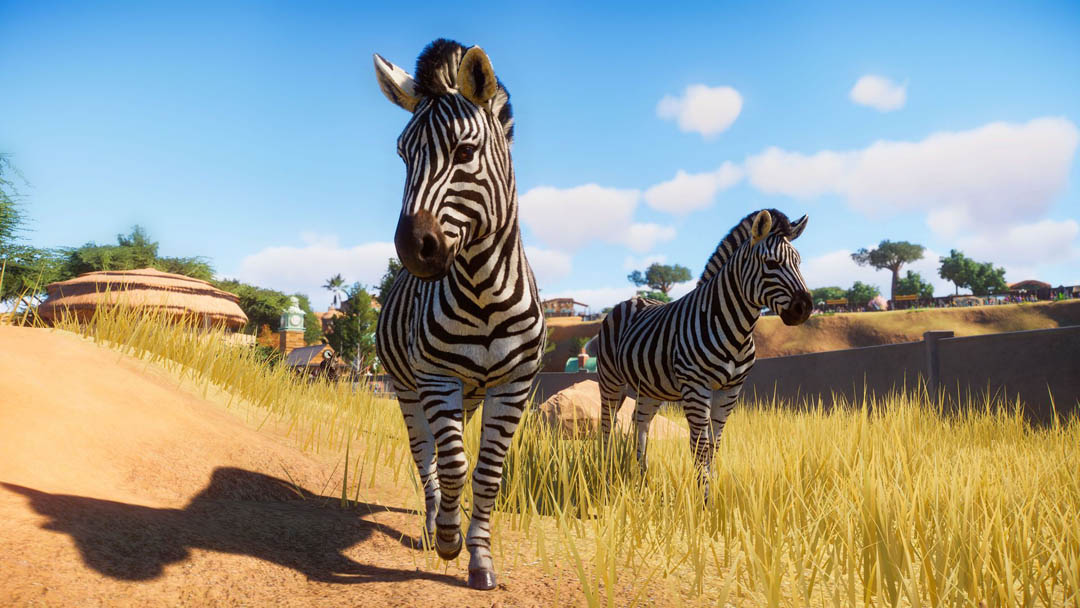
“When it comes to animating the animals, it’s not just about making sure they move right, but that we capture something about them,” says Chris Marsh, lead animator.
“We took trips to a few zoos and collected a lot of our own reference material. I wanted to know how they feel when they’re in a habitat, and existing together as a family unit.
“You can make the weight and animation timing perfect for a single creature, but when you drop five of them into an enclosure they need to interact believably. Even if you don’t notice these details, you feel it, and you’d notice its absence. One of the beautiful things about animation is that someone won’t be able to articulate exactly why they’ve responded to a particular animation. They’ve just believed in it, and those little ear flicks and nose twitches add up to create the feeling that they’re real animals. Our job is making people believe and buy into that.”
But if a management game is going to challenge the player, there needs to be moments where things go to hell. You don’t have to worry about guests being eaten by lions here, though. An escaped animal will cause a panic, but no blood will be shed, unlike Frontier’s other ‘zoo’ sim, Jurassic World Evolution. But there’s still plenty that can go wrong, forcing you to step in and deal with the crisis, spinning the appropriate plates.
“There’s the welfare of the animals, whether you’re building the right habitats and if they’re big enough,” says Piers Jackson. “You also have to be able to breed these animals effectively to increase their population.
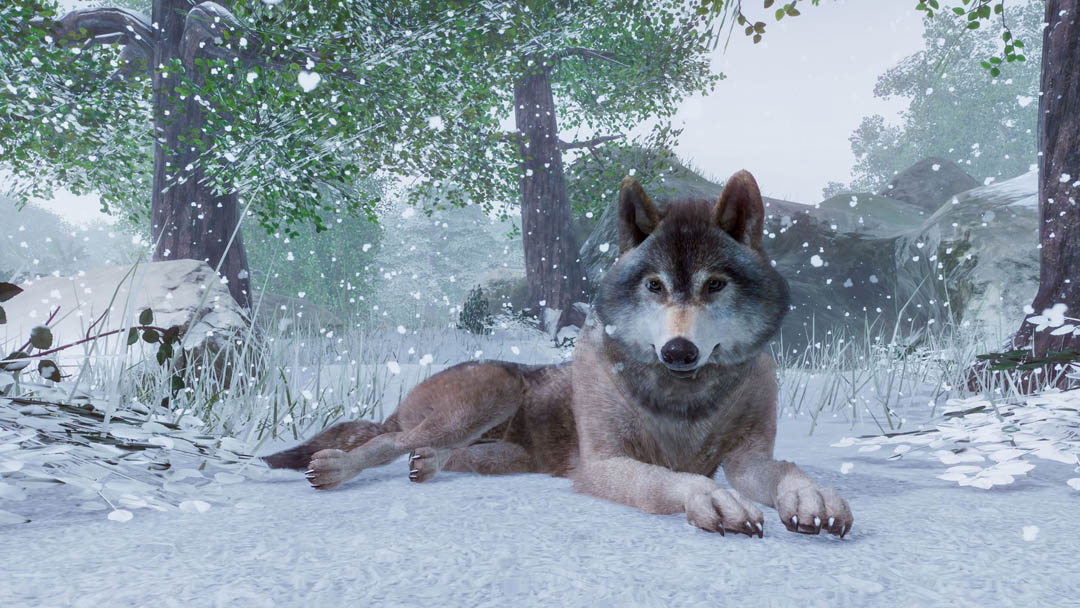
“You have to provide enrichment for them to fight off boredom, give them the right food, research them, prevent them from getting diseases.
“In any simulation management game you have to allow people to do things badly. People have to be allowed to fail or push the simulation in a way that you didn’t intend. And there can be consequences to that. Creating a habitat that isn’t good for an animal will have a negative impact on its wellbeing and the guests. But I think people will find ways of creating successful habitats that we haven’t thought of, and that’s part of the joy of making a customisable game like this.”
“Running a zoo is all about making sure the animals are well cared for, and that’s really the core of Planet Zoo,” says Jonny Watts. “You have to make sure the habitats have the correct biomes and temperatures. But there’s also a whole other area called enrichment. This means things you put into the habitat to stimulate the animals and break up their day, or recreate experiences they would have if they were in the wild. You’ll have emotional highs and lows. When an animal dies it also affects the economy. Money stops coming in, which is an important gameplay mechanic. It works on two levels, emotional and financial. If a ride breaks down in Planet Coaster you can send the engineers to fix it. But you can’t bring a dead animal back to life. That’s a beautiful bit of destruction and, from a pure gameplay perspective, a great ingredient for the simulation. And from that you get this emotional ebb and flow.”
Outside looking in
Enrichment items include scratching posts, which when placed near a viewing window will give the guests a massive satisfaction boost when a lion starts clawing at it. You can also toss giant footballs into the elephant enclosure for them to knock around. But if you want to protect the animals’ privacy, you can spend a little more money on one-way glass. They won’t appreciate crowds of people gawking at them all the time, and this will help to encourage them to play with an enrichment item.
Each animal in Planet Zoo will have its own distinctive personality and temperament. Also, to reinforce the idea of them being individuals, the patterns on their bodies will even be different. The stripes on a zebra, for instance, are randomised. And if an animal gets into a scrap it’ll pick up wounds that will, over time, develop into scars and stay there for the rest of their life. Details like this help to make the creatures under your care more than just assets to earn money—although this being a sandbox game, if you want to treat them that way, you can. You monster.
“An animal will be born and you’ll see it grow and reach old age, and you’ll definitely feel a sense of ownership there,” says Chris Marsh. “What we have to do, as animators, is make sure their health is readable.” An example of this is that, when an animal is sick, its body language will change. Its head will droop or its walk cycle will be more laboured. The Planet games are all designed this way, so you can pick up things without relying on the HUD. Players will even get to know what a particular animal call means, immediately identifying if a specific creature is in distress.
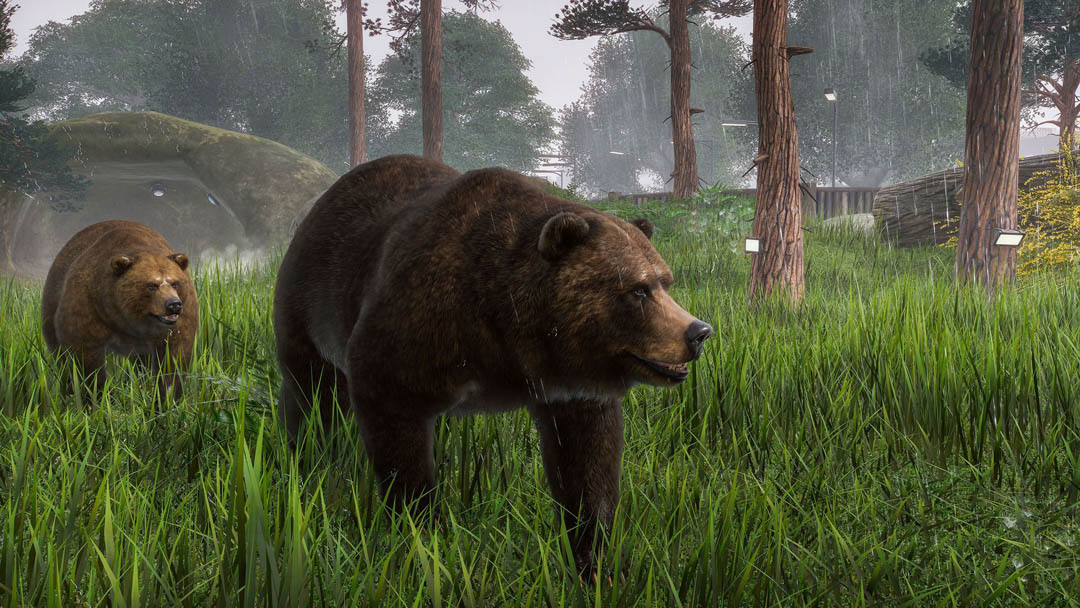
“In our games, you can pull the camera up a mile into the sky and scan your habitats,” says Marsh. “So I think you should be able to tell what’s wrong with them from there, and not just when the camera is up close. But being able to zoom in justifies the detail we put into incidental animations.”
These random animations include a pair of lion cubs rolling around and play-fighting, and elephants locking tusks. Animals won’t always get on, and some species won’t play nice with others.
If you put a load of lions in a habitat with a herd of zebras, you’re gonna have a bad time. I tell Marsh that the animals I’ve seen are some of the most convincing I’ve encountered in a game, and he explains that this one of the most important goals Frontier is striving to achieve. “We don’t want the animals to feel like these thin shells,” he says. “The bear is a great example of how we’ve made these creatures feel big and heavy.”
All terrain
As well as certain things being animated by hand, there’s also a procedural element to animal movement in Planet Zoo. Because a player can create any kind of terrain, a procedural animation system comes into play, meaning they’ll move realistically over any land formation you happen to put in front of them. Marsh shows me a demo of this in action, manipulating the ground as one of those bears moves along it, and I’m impressed by how the hefty beast navigates the terrain without missing a beat.
“The guests have needs as well,” says Piers Jackson. “Above all, they have to see the animals. If they don’t get a good view then there’ll be a negative reaction. But the animals aren’t meant to just sit there and be looked at like they’re in a shop window. So there’s a management tension in the game where you’re making sure your habitats are good for the animals, but also making sure the guests can get a good look at them.”
“Pathing is also important, because you need to create an efficient network for your keepers to restock food and so on,” adds Jonny Watts. “If they’re miles away from an animal, or the path there is too complex, they can go hungry. Your paths also have to offer places for the guests to get a clear view of the animals, as well as effortlessly guiding them between habitats in good time.
“We want everything you do in Planet Zoo, from a creative point of view, to affect the management simulation too in some way.”
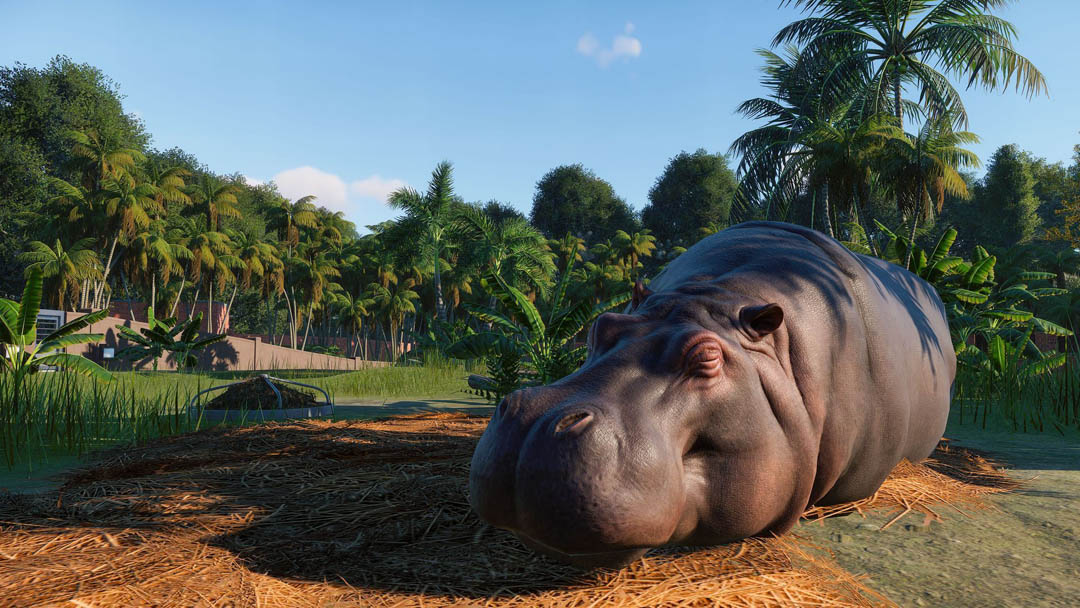
At first glance, Planet Zoo seems a lot more low-key than Planet Coaster. It’s not as noisy and colourful, which I suppose makes sense considering zoos are genuinely more chill places. I ask Piers Jackson if they intended the game to be more understated. “We’ve put a lot of effort into our foliage,” he says. “The planting of trees is really important to the habitat creation, which gives the game a realistic, organic feel. But players can still create outlandish things. We still have the full piece-by-piece building set, and we’ll have a whole new set of elements for people to create with. I’m seriously hoping, and expecting, our community to wow us with the things they build.”
But rather than just throw animals into Planet Coaster, Frontier is using this new game to refine the core of its particular style of management game. “We’re always trying to make our games better,” says Jonny Watts. “The next step in the Planet franchise is working even harder at making it deeper for the people who like that, but more accessible for others.”
Feedback loop
Frontier is known for its close relationship with the people who play its games, most notably Elite Dangerous, which is always adapting to the needs of its playerbase. “We’re always listening to the community and absorbing the feedback,” says Watts. “We take it on the chin when we need too. If you want to just put a few animals in a zoo and watch them, that’s cool. But if you want to extract more from the game and uncover its complexity, you’re going to have to work a bit harder and learn the systems.”
Planet Zoo is shaping up nicely. What impressed me most, I think, was the animal tech—both the AI and the animation. They really do feel alive, and there was something relaxing about hovering over a habitat and watching them go about their business, swimming, eating, socialising, and occasionally, you know, pooping. There’s a lot in the game I’ve only seen glimpses of, including glass enclosures that you can house snakes, reptiles, and insects in. And, if previous Frontier games are anything to go by, you can expect new features to be added long after its initial release.
If it’s set in space, Andy will probably write about it. He loves sci-fi, adventure games, taking screenshots, Twin Peaks, weird sims, Alien: Isolation, and anything with a good story.


